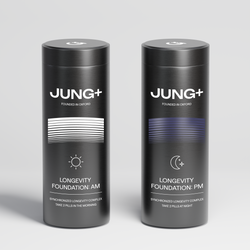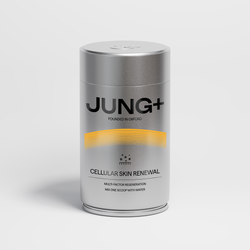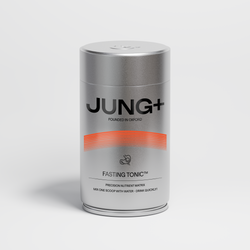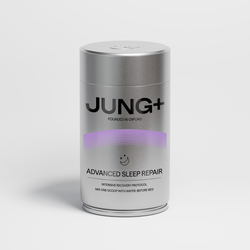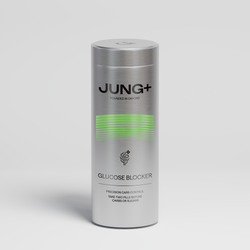It's no secret that all multicellular organisms are made up of cells. But what many people don't realize is what surrounds those cells. Often, cells in an organism are mistakenly thought of as densely packed bricks firmly cemented together. In fact, cells are kept in a relatively constant position from each other by the extracellular matrix. The substances of which it is composed can be divided into several groups: glycoproteins, proteoglycans, and hyaluronic acid. The glycoprotein called collagen should be emphasized because it is the most common protein not only in the extracellular matrix but also in the entire human body. Let’s talk about it!
Collagen: The Essential Building Block of Our Body
Collagen is an essential glycoprotein, constituting 25 to 45% of the body's proteins. Synthesized by fibroblasts, it is present in various tissues such as tendons, bones, cartilage, and skin dermis, providing structural support, hardness, and elasticity [1]. Collagen is not a single protein but rather a diverse family categorized into subgroups based on their structural and functional properties [2]. The human body processes 2-3 g of collagen daily, with its quantity and quality diminishing with age [3].
The collagen "superfamily" encompasses at least 28 different types in the human body, divided into two major classes: fibrillar (types I, II, III, V, XI, XXIV, and XXVII) and non-fibrillar [4]. Type I constitutes up to 90% of the body's collagen and is found in connective tissues like skin, tendons, vasculature, and bones [5]. Type III commonly coexists with Type I, making up 5-20% of total collagen [6]. It contributes to the structure of soft tissues, including the liver, bone marrow, and organs of the lymphatic system, and plays a crucial role in wound healing [7]. Types I and III are also the most prevalent types in dietary supplements.
Disturbances in collagen production can lead to various diseases, with a thousand mutations identified in twelve of more than twenty collagen types. These mutations can result in tissue-level disorders such as osteogenesis imperfecta, chondrodysplasias, Ehlers-Danlos syndrome, Alport syndrome, osteoporosis, and Knobloch syndrome [8].
Why all collagen is not created equal
The collagen family exhibits wide and varied representation across different organisms and tissues, where it serves diverse functions [9]. Moreover, collagen is not uniform due to its post-translational events. After folding, the collagen molecule undergoes additional modifications—hydroxylation, glycosylation, and cross-linking—which are contingent on tissue type, age, and hormonal status [10]. These modifications are akin to hanging toys on a Christmas tree, enhancing the complexity and heterogeneity of collagen.
Furthermore, the unique molecular structure of collagen imparts distinct properties and functions in various tissues. Functionally, collagen variants can be adjusted to modulate proteolytic degradation, cell adhesion, and mechanical characteristics.
Different collagen types have evolved to meet the specific physiological needs of organisms, resulting in the emergence of multiple genes for collagen synthesis and the selective synthesis of functionally related proteins. Let's explore an example.
Skin Collagen vs Joint Collagen
What’s important to realize is that different types of collagen will have different effects on the body. So if you want to improve your skin, or protect the mobility in your joints, you will need to make sure you are using the correct form of collagen.
Skin collagen (predominantly type I collagen) and joint collagen (predominantly type II collagen) have different functions and structures. Dermal collagen is responsible for the smoothness and elasticity of the skin, giving it a youthful appearance [1].
On the other hand, joint collagen forms a significant part of cartilage, the flexible tissue that cushions and protects the joints. This collagen type is essential for maintaining joint health and functionality. It provides tensile strength to cartilage, ensuring it can withstand the mechanical stress associated with joint movements [11].
Joint collagen is crucial for preventing conditions like osteoarthritis, where the breakdown of collagen in cartilage leads to joint pain, stiffness, and reduced mobility. Supplements containing Type II collagen are often recommended for promoting joint health and alleviating symptoms related to joint disorders [11].
In addition, joint collagen, specifically, collagen VII and collagen XVII, plays a critical role in the dermal-epidermal junction zone, which is responsible for the tight and strong connection between the outer layer of the skin (epidermis) and the inner part of the dermis [12]. Collagen VII and collagen XVII are essential for the mechano-resilience of this zone, and their deficiency can lead to genetic and autoimmune skin diseases with blistering [13].
While dermal collagen is responsible for the appearance and elasticity of the skin, joint collagen is involved in the structural integrity and function of the dermal-epidermal junction zone in the skin. Unfortunately, 99% of all collagen supplements on the market are not designed or tested for a specific use case within the body - which is why the choice of form is so important.
Decoding Bioactive Peptides from Hydrolyzed Collagen
With age, collagen production in the body declines, and its breakdown increases. As a result, the skin's elasticity decreases, leading to the appearance of wrinkles—the most noticeable sign of aging [14]. This process necessitates the need to find sources to replenish collagen levels, such as collagen supplements.
However, there is a lot of confusion surrounding these supplements, based on two main questions: do supplements really help, and in what form should they be taken?
There are now three forms of collagen supplements: peptides, amino acids, and pure collagen. Importantly, investing in pure collagen may not be the most cost-effective choice, as it essentially breaks down into amino acids and proteins, offering limited value for your money. It is generally accepted that consuming isolated or individual amino acids found in collagen will provide the same health benefits as consuming collagen peptides. However, processing and digestion produce compounds called "bioactive peptides", and it is these bioactive peptides that are the primary driving force behind the vast array of beneficial properties of collagen peptides [15].
Bioactive peptides are present in their native protein structures but are "buried" and do not become available until the protein is thoroughly hydrolyzed. After enzymatic hydrolysis (where a molecule of water destroys bounds), many of the peptides become "unburied" and, with this, become available for absorption and biological activity. Bioactive peptides are considered the "new" generation of biologically active regulators and are thought to play a significant role in human health by modulating the cardiovascular, digestive, endocrine, immune, and nervous systems [16]. It is through the generation and absorption of these bioactive peptides that collagen offers many of its unique properties. While individual amino acids provide the building blocks necessary for protein formation and pure collagen needs to be modified, bioactive collagen peptides serve as messengers that activate signaling pathways and stimulate metabolic processes. How? Let's investigate.
How Collagen Peptides Boost the Body's Natural Synthesis
Collagen peptides stimulate the body's synthesis, promoting collagen production and improving the extracellular matrices of connective tissues.
- Research shows that collagen peptides sequentially synthesize elastin and collagen, proteoglycans, and glycosaminoglycans by fibroblasts, inhibit their degradation, and promote the formation of a stable extracellular matrix derived from dermal fibroblasts. This results in positive effects on hydration and skin changes [17,18].
- In addition, the study revealed the ability of bioactive peptides to inhibit enzymes such as collagenase (MMP-3 and MMP-13) and gelatinase (MMP-2 and MMP-9), which strongly affect collagen [19].
- Active peptides also exhibit ACE-inhibitory (that help relax the veins and arteries to lower blood pressure), antioxidant, and antimicrobial properties [20].
- Moreover, a single dose of labeled C14 collagen has been shown not only to reach the skin, cartilage, bones, and muscles of the legs but also to remain in these tissues for up to 14 days after consumption [21].
To maximize efficacy, it is recommended to opt for a proven supplement like Verisol, precisely formulated with the bioactive peptides discussed earlier. Verisol has undergone thorough testing, demonstrating proven efficacy for skin collagen activation, and boasting a patented formula. These attributes set it apart from other alternatives related to biological collagen or amino acids.
Key Factors Influencing the Efficacy of Collagen Peptides
To enhance the effectiveness of Collagen Peptides, consider several key points:
- Take the Collagen Peptides regularly as recommended by the manufacturer. While collagen production won't dramatically increase from a single capsule, regularity is crucial for a visible effect.
- Consume foods rich in vitamin C and antioxidants, or choose supplements that combine Collagen Peptides with these essential compounds. For instance, our product, Cellular Skin Renewal, acknowledges the synergy between Collagen Peptides and antioxidants to safeguard from oxidative stress new collagen molecules and the fibroblasts responsible for their production.
- Quit smoking and limit caffeine intake, as these habits can negatively impact the skin, leading to dryness and influencing fibroblasts to prioritize hyaluronic acid production.
- Shield your skin from sunlight. While UV exposure is necessary for vitamin D production, excessive sunlight can cause damage to proteins and cells.
These steps provide a foundational approach to boosting the efficacy of Collagen Peptides. Additionally, maintaining a balanced diet, managing stress, and minimizing exposure to pollution contribute to overall skin health. While some lifestyle changes may be challenging, the simple act of incorporating high-quality supplements into your daily routine is an accessible and effective step.
Debunking the Myth of “Vegan Collagen” Products
From a regulatory perspective, as defined by the Food Chemicals Codex, gelatin is described as follows: "a product derived from the acid, alkaline, or enzymatic hydrolysis of collagen, the major protein component of skin, bone, and connective tissues of animals, including fish and poultry" [22].
Therefore, there are no plant sources of gelatin, and there is no chemical relationship between gelatin and materials referred to as "vegan gelatin," such as seaweed extracts. This principle extends to collagen peptides, as they are derived from gelatin. Products labeled as "vegan collagen" are mislabeled and can mislead consumers. However, an exception exists in terms of structure, though not in definition—genetically modified collagen. This field is continually expanding, contributing to the advancement of synthetic biology related to collagen.
Concerning alternative collagen, certain compounds have demonstrated mechanisms of action similar to conventional collagen peptides. However, it is crucial to emphasize that collagen peptide claims should not be attributed to these compounds. Products containing such compounds should not be labeled as "vegan collagen".
Bone Broth vs. Collagen Peptides: What's the Real Deal?
Can chicken broth serve as a viable alternative to bioactive peptides? The straightforward answer is no.
A study comparing the amino acid content of bone broth and reference collagen supplements revealed significantly lower concentrations of key amino acids, including glycine, proline, and hydroxyproline in bone broth [23]. Supplements demonstrate superior efficacy, can be taken daily with much convenience, unlike broth which requires burdensome preparation and storage.
Moreover, animal bones are known to absorb metals, including heavy metals like lead. Regularly consuming chicken broth in an attempt to achieve peptide efficacy levels may result in the accumulation of lead in the body [24].
Choose complex skin vitamins for a more efficient approach—why waste time daily cooking and then cleaning the kitchen?
Collagen, the most crucial structural protein, imparts firmness, elasticity, and density to the skin. With aging, its levels decline, resulting in visible surface changes such as wrinkles and fine lines. Supporting the body and fibroblasts becomes essential to maintain collagen levels, ensuring youthful and healthy skin for as long as possible.
- Enigmatic insight into collagen [2016]. Journal of Oral and Maxillofacial Pathology.
- The collagen family members as cell adhesion proteins [2007]. BioEssays.
- The metabolic and molecular bases of inherited disease [2001]. Glycogen storage diseases.
- Fibrillar Collagens [2017]. Sub-Cellular Biochemistry.
- Current Insights into Collagen Type I [2021]. Polymers.
- Collagen types: structure, distribution, and functions [2018]. Chapter at Collagen.
- Type III collagen (COL3A1): Gene and protein structure, tissue distribution, and associated diseases [2019]. Gene.
- Collagens and collagen-related diseases [2001]. Annals of Medicine.
- Collagen: molecular diversity in the body's protein scaffold [1980]. Science.
- Intracellular Post-Translational Modifications of Collagens [2005]. Topics in Current Chemistry: Chapter at Collagen.
- Collagen Supplementation for Joint Health: The Link between Composition and Scientific Knowledge [2023]. Nutrients.
- Collagen – A Review [2022]. Available from: 10.37896/ymer21.02/10
- Skin Blistering and Collagens: From Bench to Therapies [2021]. Plastic and Aesthetic Research.
- Skin ageing [2007]. Menopause.
- Identification of food-derived collagen peptides in human blood after oral ingestion of gelatin hydrolysates [2005]. Journal of Agricultural and Food Chemistry.
- Bioactive Peptides: Synthesis, Sources, Applications, and Proposed Mechanisms of Action [2022]. International Journal of Molecular Sciences.
- Effects of collagen-derived bioactive peptides and natural antioxidant compounds on proliferation and matrix protein synthesis by cultured normal human dermal fibroblasts [2018]. Scientific Reports.
- Oral intake of specific bioactive collagen peptides reduces skin wrinkles and increases dermal matrix synthesis [2014]. Skin Pharmacology and Physiology.
- Effects of Collagen Tripeptide Supplement on Photoaging and Epidermal Skin Barrier in UVB-exposed Hairless Mice [2012]. Critical Reviews in Food Science and Nutrition.
- Improving the Sustainability of Processing By-Products: Extraction and Recent Biological Activities of Collagen Peptides [2023]. Foods.
- Absorption and effectiveness of orally administered low molecular weight collagen hydrolysate in rats [2010]. Journal of Agricultural and Food Chemistry.
- The United States Pharmacopeia 2011 : USP 34 ; The national formulary : NF 29. [2010].
- Bone Broth Unlikely to Provide Reliable Concentrations of Collagen Precursors Compared With Supplemental Sources of Collagen Used in Collagen Research [2019]. International Journal of Sport Nutrition and Exercise Metabolism.
- The risk of lead contamination in bone broth diets [2013]. Medical Hypotheses.

